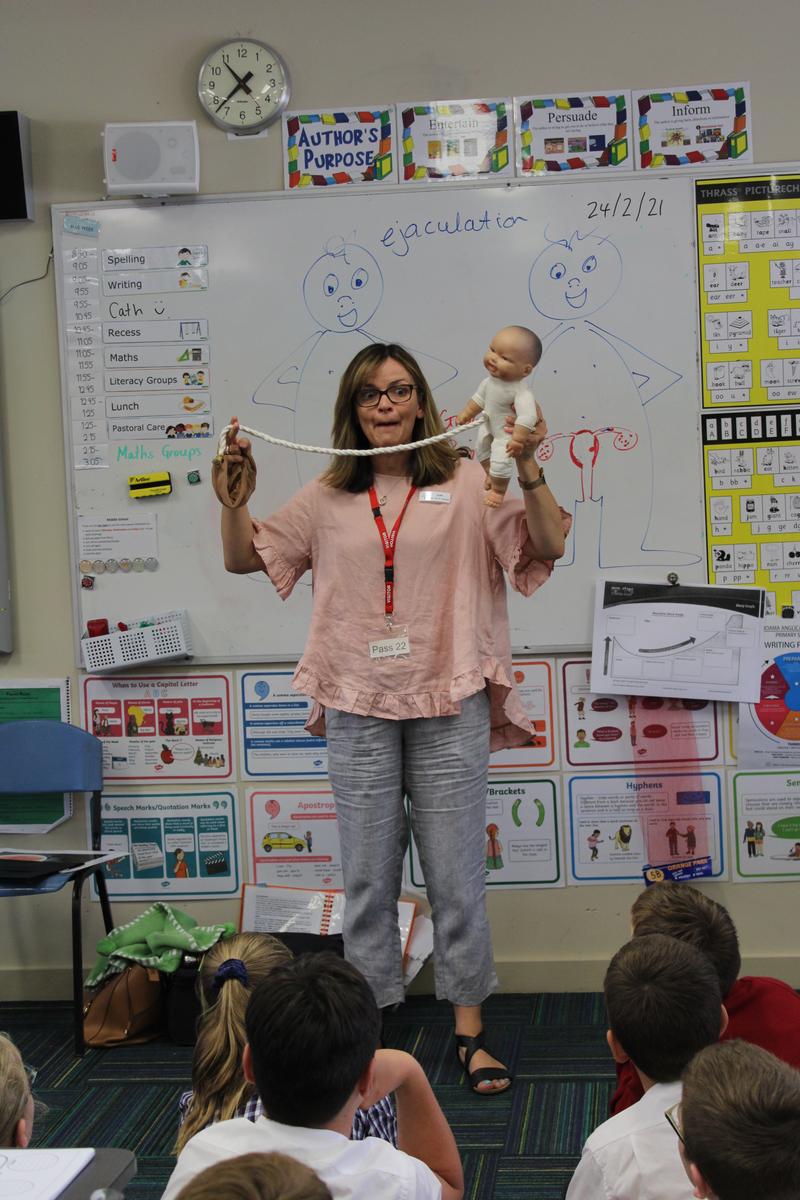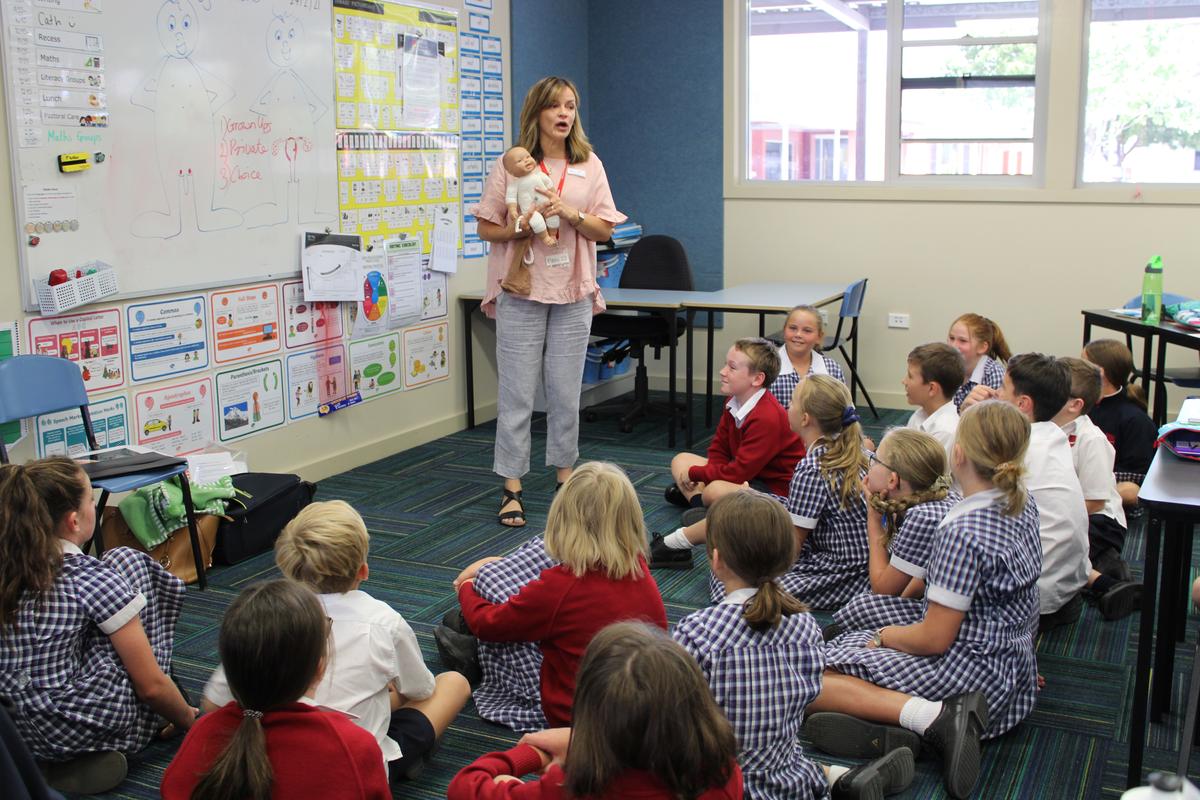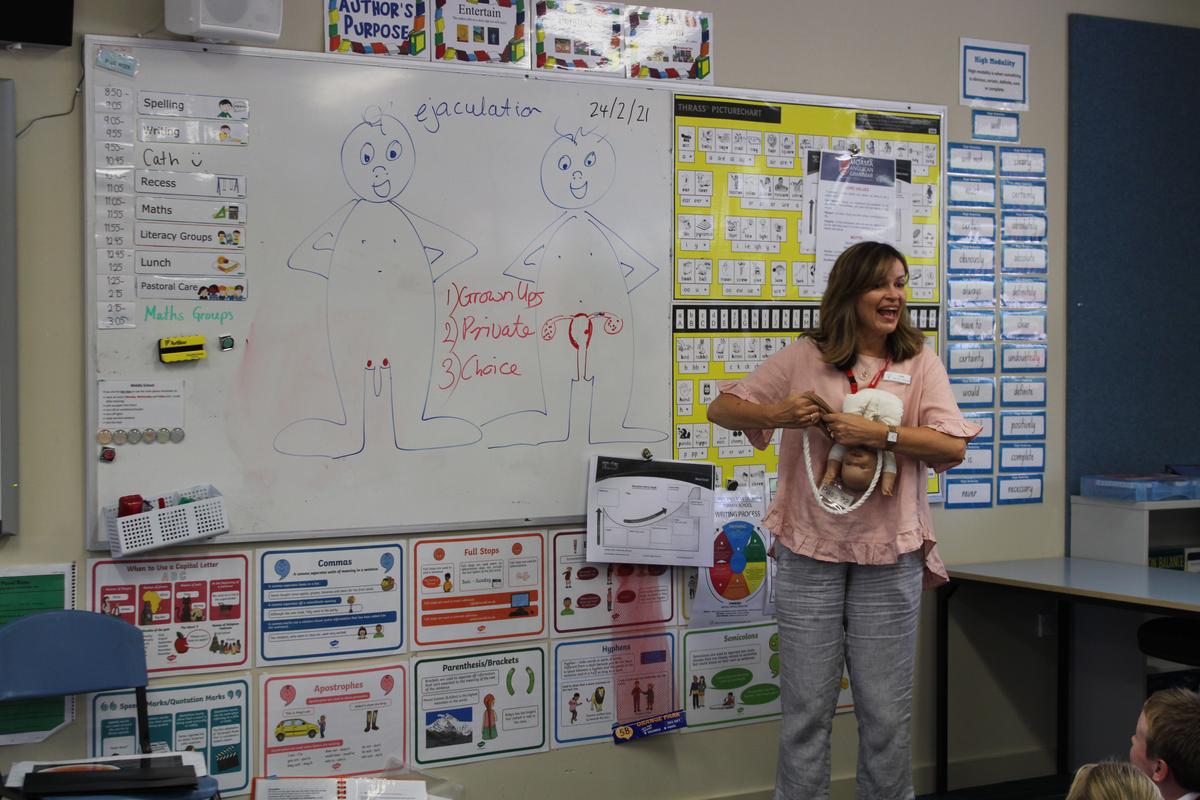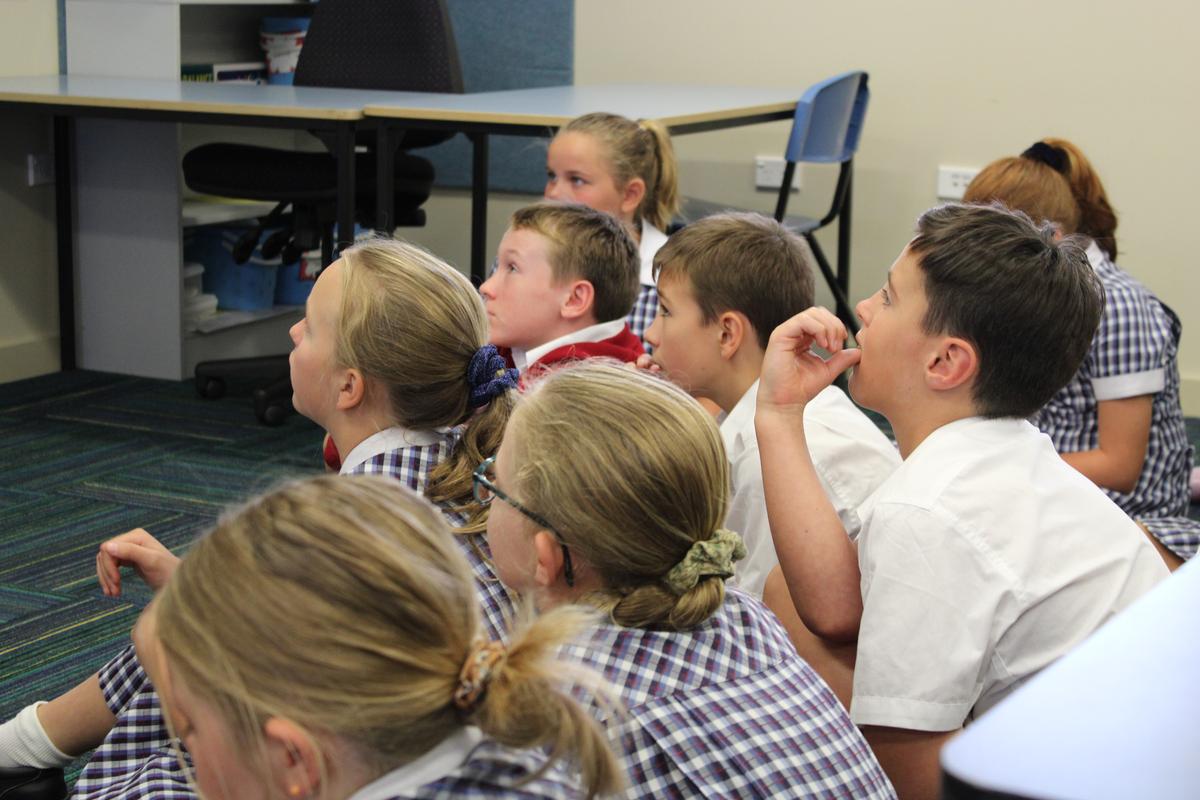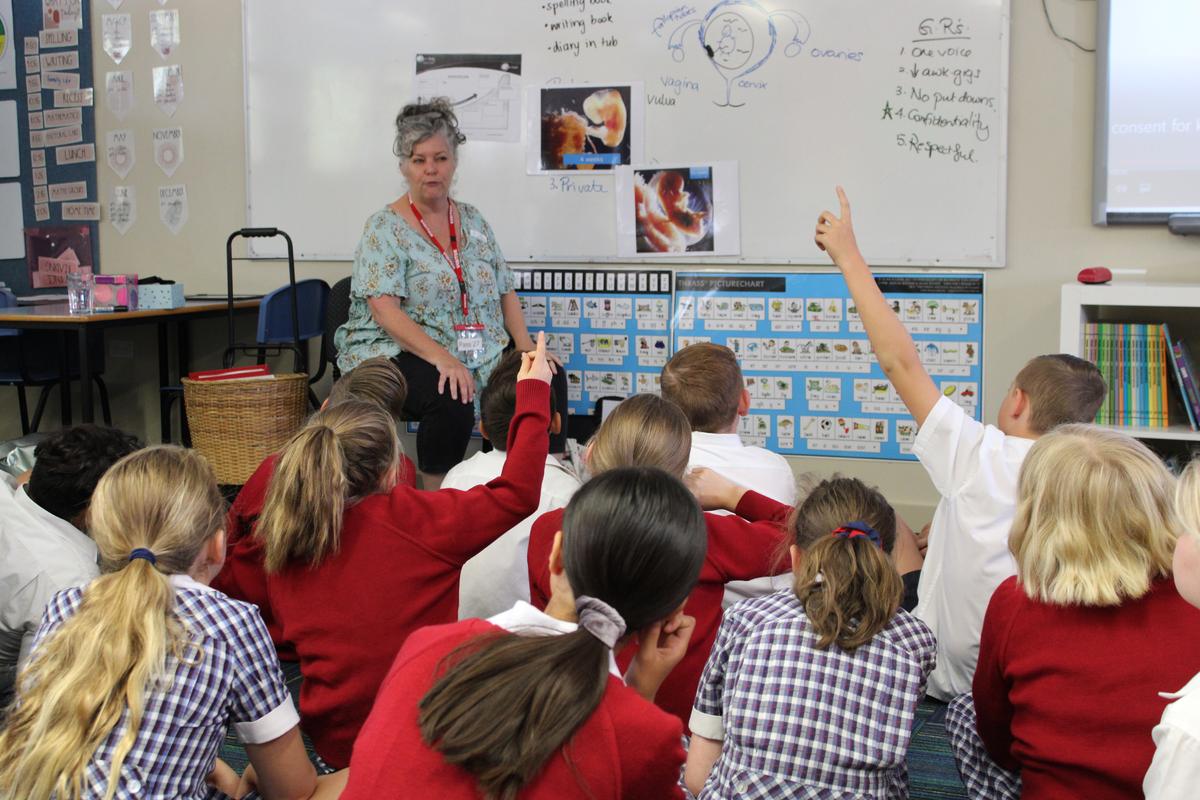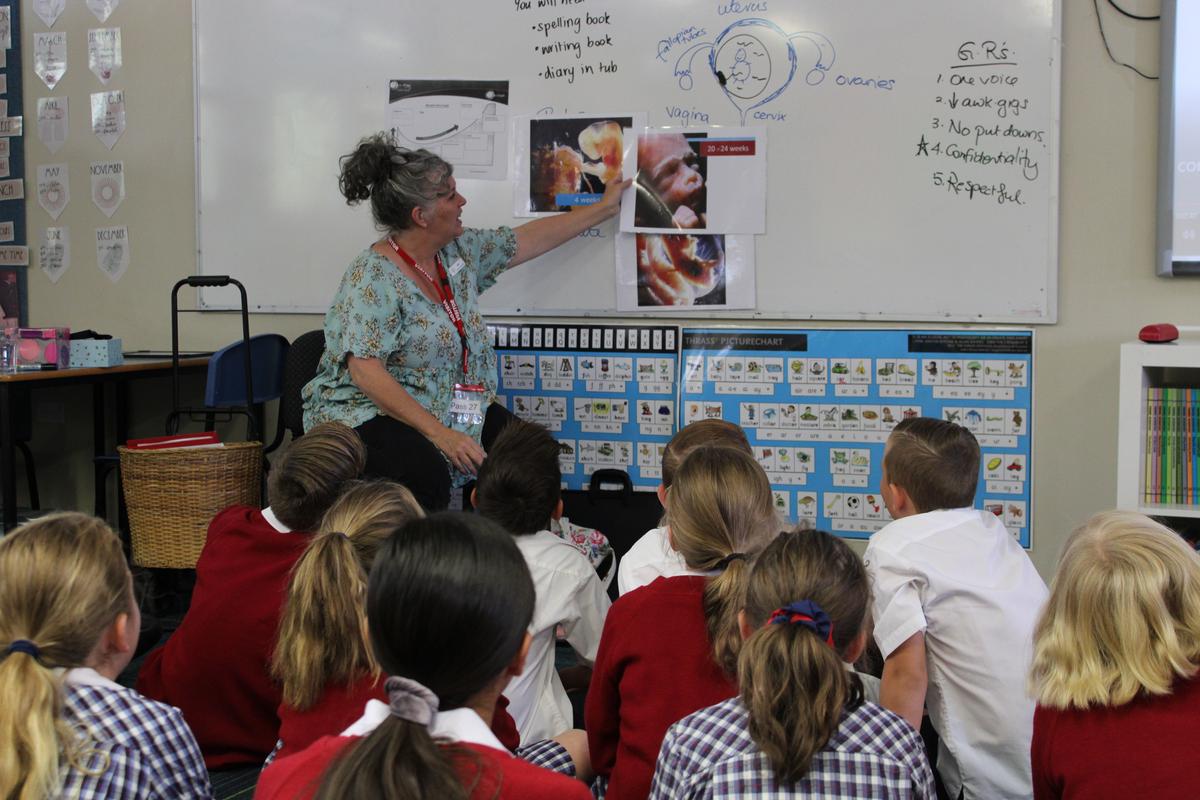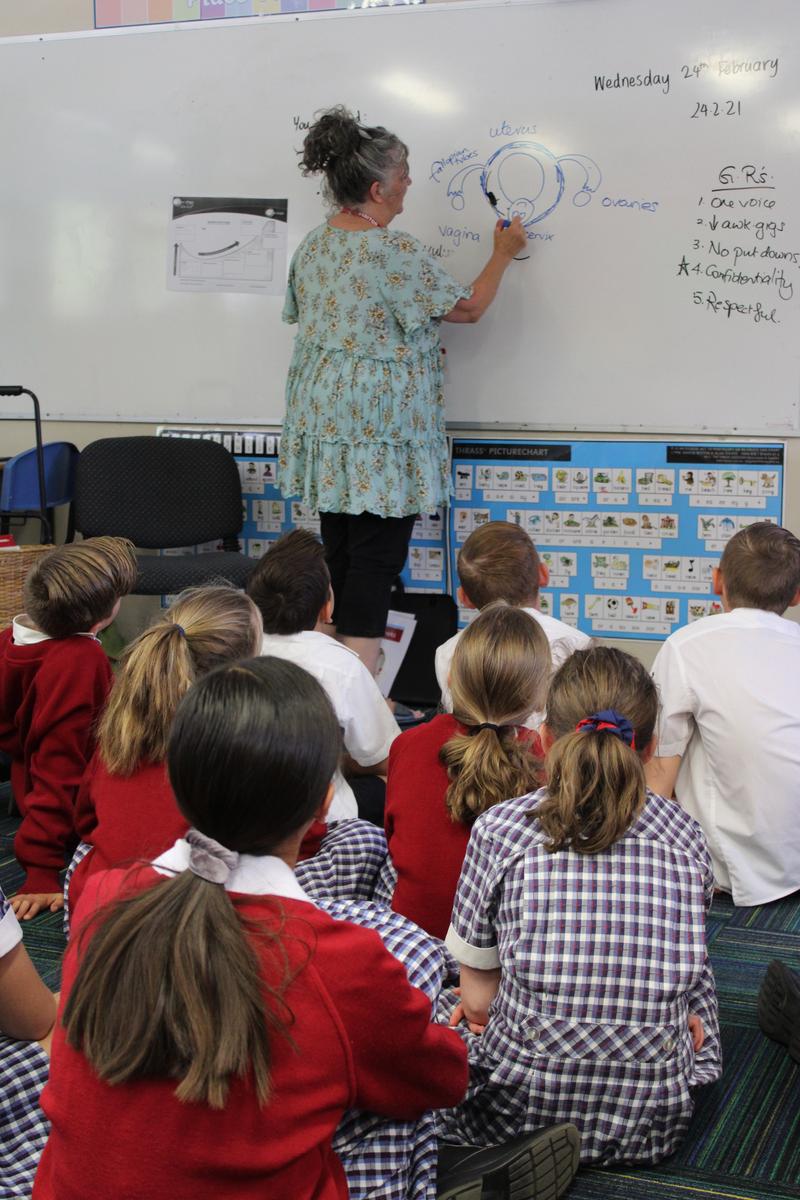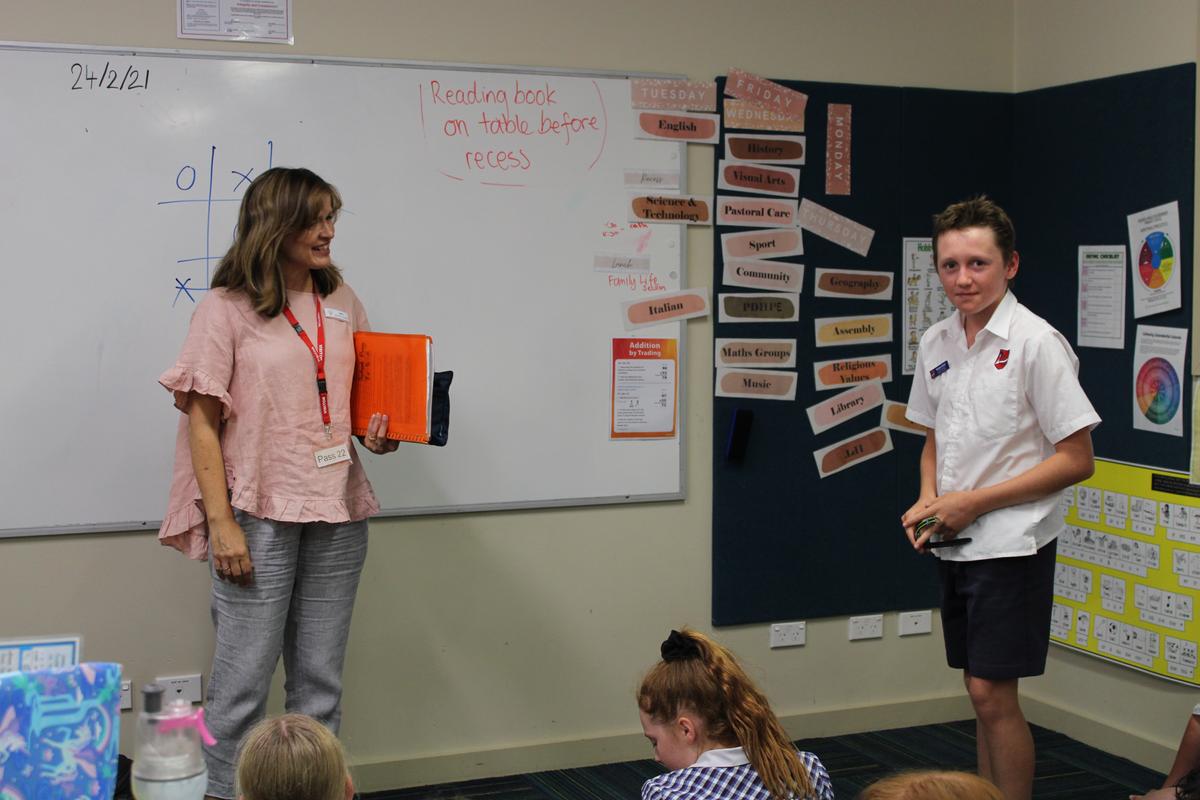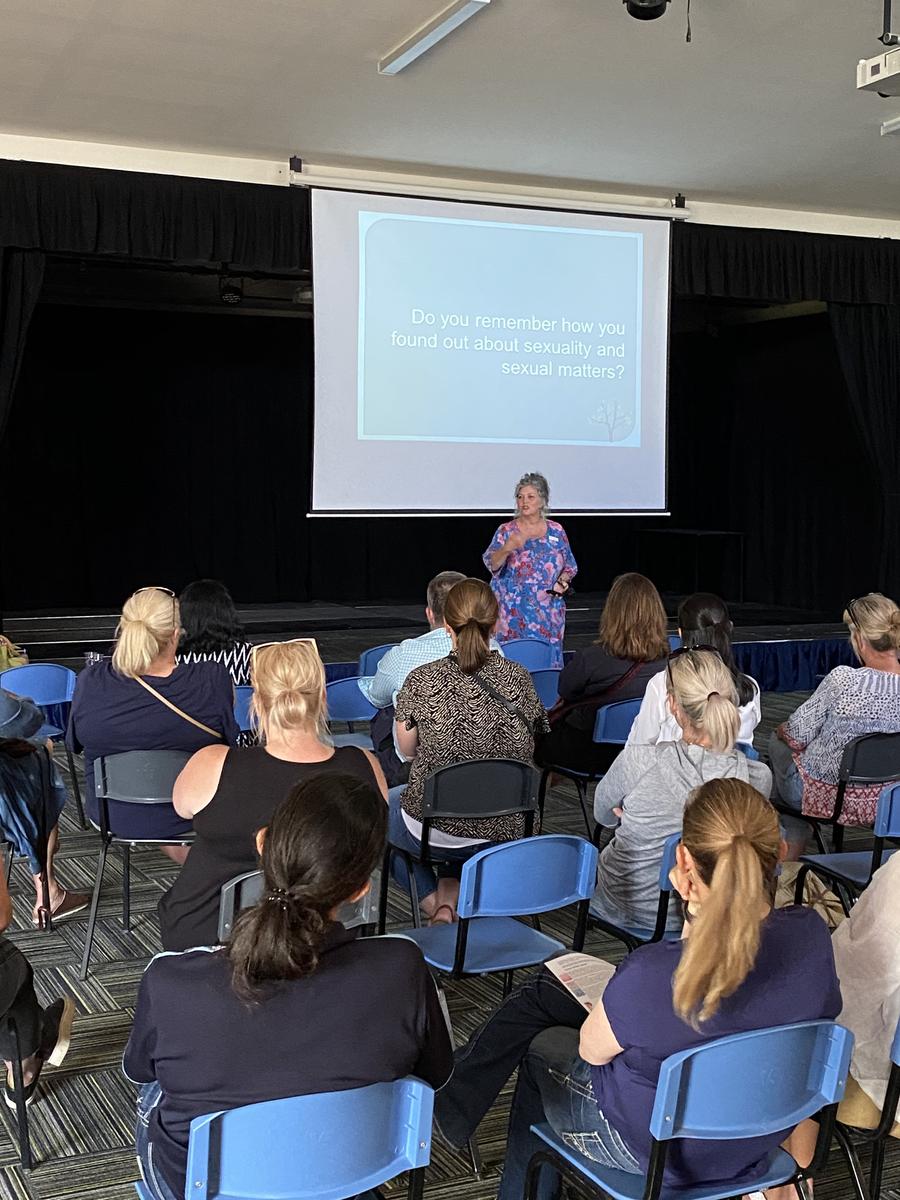Primary
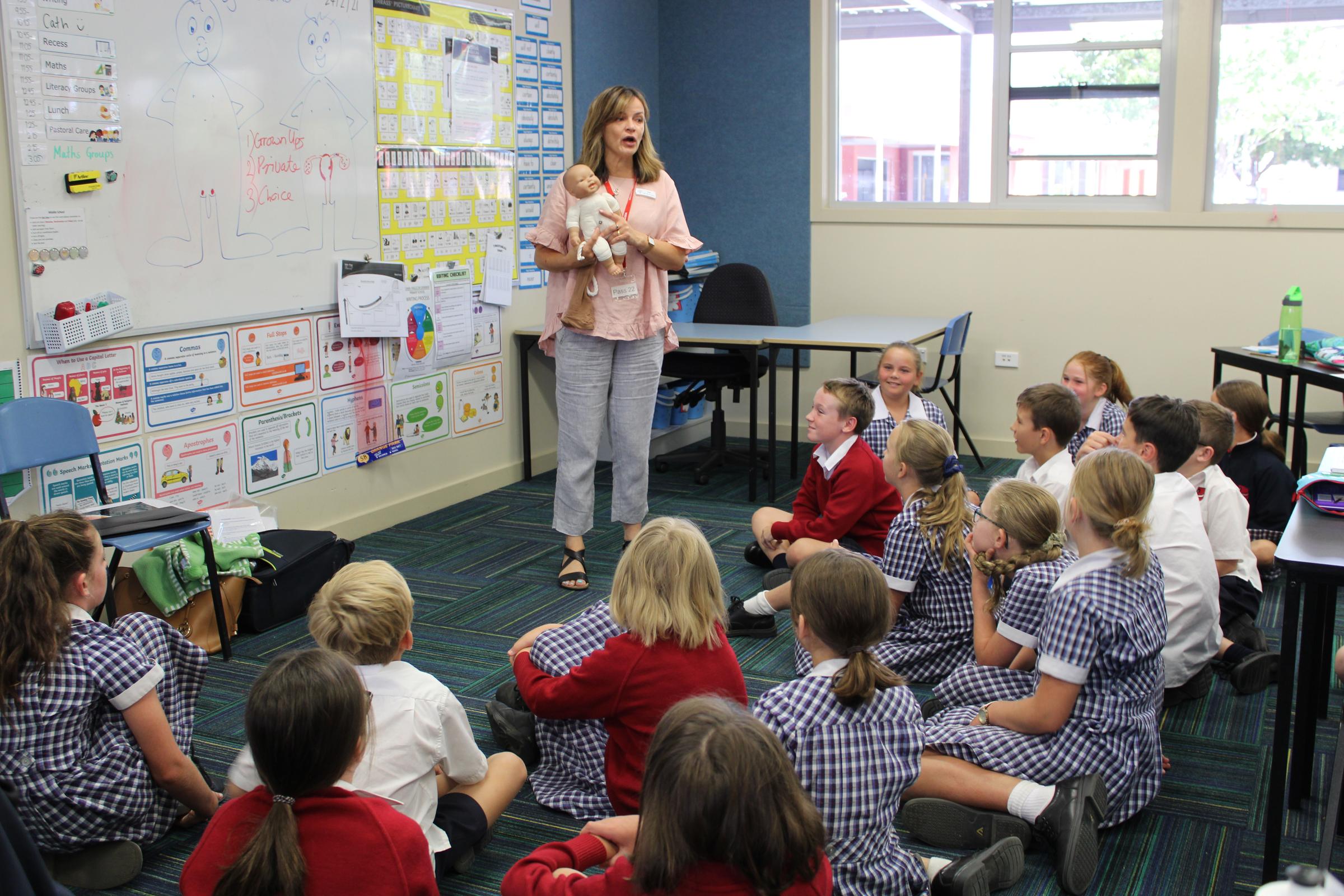
Message from Nici Deller, Head of Primary
I would like to thank all our families for their patience as we worked through our first Circuit Breaker with little notice. It was a timely reminder to all of us that we simply cannot become complacent and that we need to be prepared in the event that further Circuit Breakers or Lockdowns are imposed on us in the future. I would like to thank all the staff who have worked tirelessly behind the scenes to ensure that should a further lockdown occur, the Quality Distance Learning (QDL) Program is ready to be implemented.
Kinder Parent Reading Information Night and Workshop
It is important to read with your child on a daily basis. At Moama Anglican Grammar, we recognise the valuable part you, as parents, play in helping your child learn to read. To help close the gap between reading at home and at school, an Information Night and two practical workshops will be presented to all parents of Kinder students in 2021. Both the information session and the workshop are to promote a shared understanding of the reading process and to encourage consistent language throughout the school. This will not only help your children with their reading, it will build your confidence when helping them. More information will be shared in the near future, however, please note the dates for each event below:
Information Night
When: Monday 22 March 2021
Time: 6:30pm
Location: Multipurpose Hall
Practical Workshop
When: Wednesday 24 March 2021
Time: Session 1 at 8:50am / Session 2 at 2:15pm (parents choose their preferred time as both sessions offer the same information)
Location: Multipurpose Hall
Pick Up Arrangements in the Primary Car Park
Unfortunately, parents are still not able to enter the school grounds to collect their child/ren from the classroom. To support families, we continue to offer the Drive Through option. However, we have noticed an increase in the number of parents who park their car and walk up to the school grounds where they collect their child/ren.
To ensure the safety of students, parents and staff, could we please ask that you wait for your child/ren on the footpath beside the Multipurpose Hall. There is enough space for parents to maintain social distance requirements and students will be asked to walk over to this spot at the end of the day. This will prevent students and parents crossing the road in the busy pick-up zone.
Sexuality Education Program Year 4-6
Cath McCallig and Kelly Nash worked collaboratively with our students in Years 4 to 6 this week, delivering engaging lessons and lots of new information on various topics as part of PDHPE and Pastoral Care programs.
The Year 4 program covered topics; Myself and My family, Body Parts and Functions. The Year 5/6 program topics focused on; I’m Changing, I’m Managing Puberty and What’s It all About.
Thanks to our great parent support at our information sessions. The ladies shared some great resource suggestions that also may be of interest to continue your ongoing discussions at home with your children.
'Secret Girls Business' by Anderson, Angelo and Stewart
'More Secret Girls Business' by Anderson, Angelo and Stewart
'Secret Boys Business' by Angelo, Stewart and Anderson
'Puberty Girl' by Shushann Movsessian
'Puberty Boy' by Geoff Price
'What's Happening to Me?' by Peter Mayle
University of Melbourne Psychology Clinic
Our School has been fortunate for many years to utilize the fabulous services of the UoM Psychology Clinic. This week for 3 days we had a visit from Dr Chelsea Hyde, the clinic manager, and her team to conduct The University of Melbourne Psychology Clinic - Regional Educational Psychology Assessment Service.
The regional clinic provides educational assessment services to communities in regional Victoria. Psychological assessments are conducted by provisional psychologists who are currently undertaking advanced training in the Master of Educational Psychology program at the University of Melbourne. All services are closely supervised by a team of lecturers and highly-experienced registered psychologists, all of whom hold endorsement in educational and developmental psychology and registration as supervisors with the Psychology Board of Australia. The clinic offers psycho-educational assessments for children and adolescents that measure a profile of cognitive and academic strengths and weaknesses. Assessments explore difficulties in intellectual functioning, learning, memory, academic ability, attention and concentration that can help identify specific learning disorders, intellectual disability or other developmental disorders. Assessments can also identify superior intellectual functioning (often referred to as giftedness) and inform recommendations to inform positive learning outcomes and social and emotional development. Children are generally referred for psychological assessments when they are having difficulties at school. The aim is to conduct an assessment that takes into account information from a number of sources (e.g. parents, teachers, child) and considers different possibilities for the difficulties. Recommendations are designed to assist children, their families and schools to achieve positive outcomes. If further referral is required, this will be indicated in the report.
Composting Club
Students in the Primary School have access to an exciting new Composting Club run by Mrs Tracee Zweck. Students are given the opportunity to work as part of a team to change food waste into wonderful compost/food for our gardens. The students manage the classroom food scraps and take turns in collecting the scraps from the Primary School classrooms. Each Friday the team will meet and add dry matter/manure/water to the bins. The students learn how to use an aerator to add oxygen to the compost and learn how to maintain the correct temperature for the compost to thrive. Happy composting!
Number Talk
With Primary Numeracy Coordinator, Stacy Briggs.
How to help your children with maths you don’t understand
Davide Penazzi, The Conversation.
Last year, COVID related school closures left many parents in charge of overseeing their children’s education at home. If you are one of them, you might be struggling with maths in particular – not least due to having to grapple with topics and techniques you are unfamiliar with, such as number bonds, rainbow numbers and more.
But this is where a positive mindset, and the ability to accept that you are also on a learning path, can help. Here are some tips on the best way to tackle teaching maths you don’t know.
Work together
Think of yourself as accompanying your child towards understanding a new concept, rather than explaining it to them. As a parent, there is a natural desire to provide for and support your child with your experience, but this is impossible when you do not know what you want to explain.
What you are able to do is to tap into your past experiences of having solved problems and managed challenges. So simply be honest and say to your child that this method is new to you, too, but that you will work to understand it together.
Start small and use props
New concepts can be overwhelming. Start as small as you can, and play around with something concrete – such as buttons or coins or pieces of Lego – to help you both understand. For instance, your child might be working on number bonds: learning the pairs of numbers that add together to make a particular total.
Think about why it’s useful
Learning maths may seem pointless, and this can lead to frustration. After all, there is not much need to know how to divide 155,252,188 by 19,838 when the calculator on your phone will do it for you.
But this does not mean that you don’t need to do any mental computation at all in life. Perhaps you have a budget of $50 and want to know quickly if buying three items priced $13, $20 and $17 will push you over this total. Your knowledge of number bonds tells you that three plus seven is ten – so 13 plus 17 is 30, which plus the additional 20 puts you perfectly at your budget.
Since the 1980s, theories about the best methods of education have moved away from rote learning, which can cause pupils to disengage from maths. Instead, education experts have championed more engaging methods, based on learning through experience.
The focus is now on teaching pupils to become problem solvers: fluent in maths with the ability to reason and apply what they have learned. In teaching number bonds, you are helping your child develop a numerical tool that can allow them to effectively process simple computations, which in turn make them more capable of dealing with problems in life or at work.
Avoid the fear factor
It is easy, especially if you have had bad experiences with maths in your past, to give way to panic. Teaching unknown concepts could make what is known as maths anxiety – the irrational fear of anything mathematical – resurface. The risk is that this fear can be passed to your child. This can have consequences for their enjoyment of school – and even for the decisions they make in life.
Keep it real
Once you and your child have learned a mathematical concept, try to make it more real and use it in everyday life. Make number bonds with biscuits or pieces of fruit. Add up prices of supermarket items. Be creative and make colourful number bond patterns with building blocks or objects such as sticks and leaves you find on a stroll.
Finally, don’t be discouraged if you sometimes struggle. And allow yourself and your child plenty of time to learn a new idea. Some mathematical concepts can be counter-intuitive or hard, and it is fine to sometimes let go, do something else, and come back to it at another time.
Penazzi, D. (2021). How to help your children with maths you don't understand. Retrieved 9 February 2021, from https://theconversation.com/how-to-help-your-children-with-maths-you-dont-understand-154396

